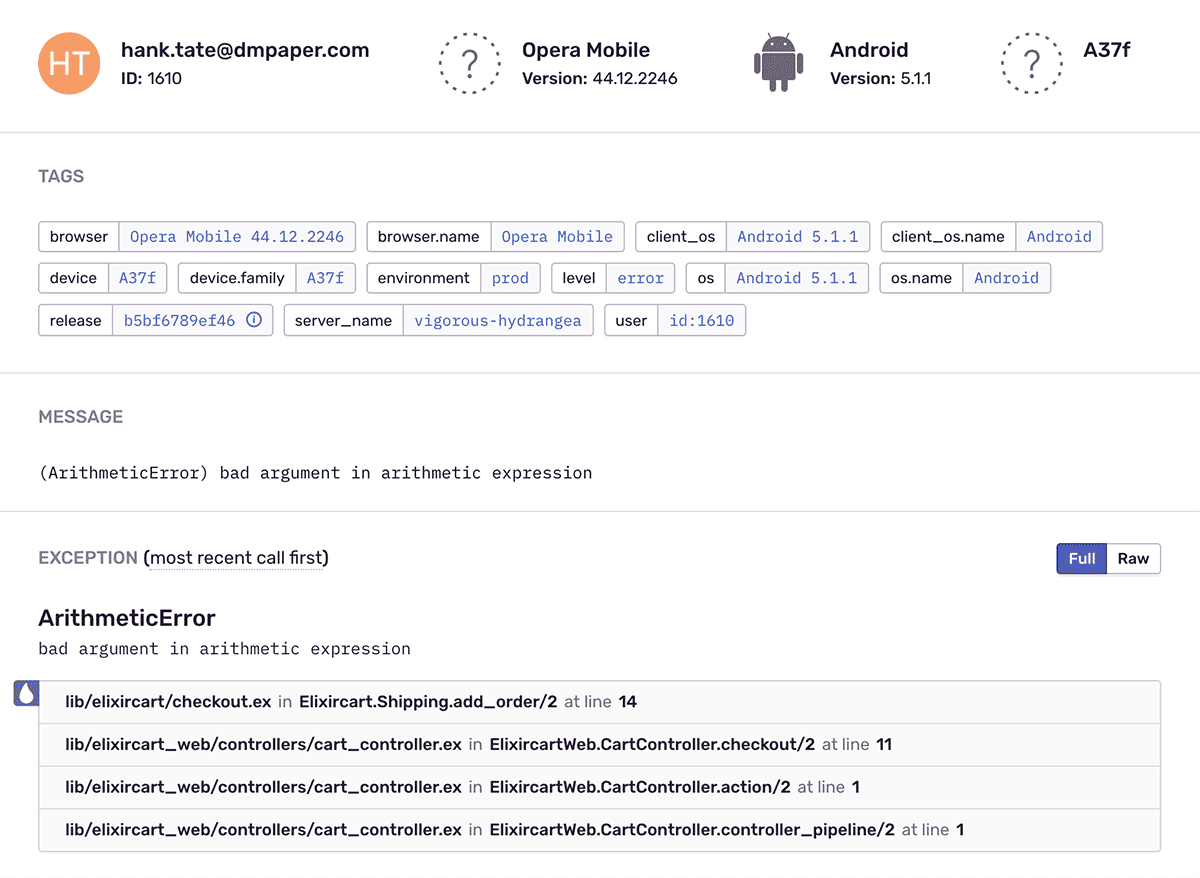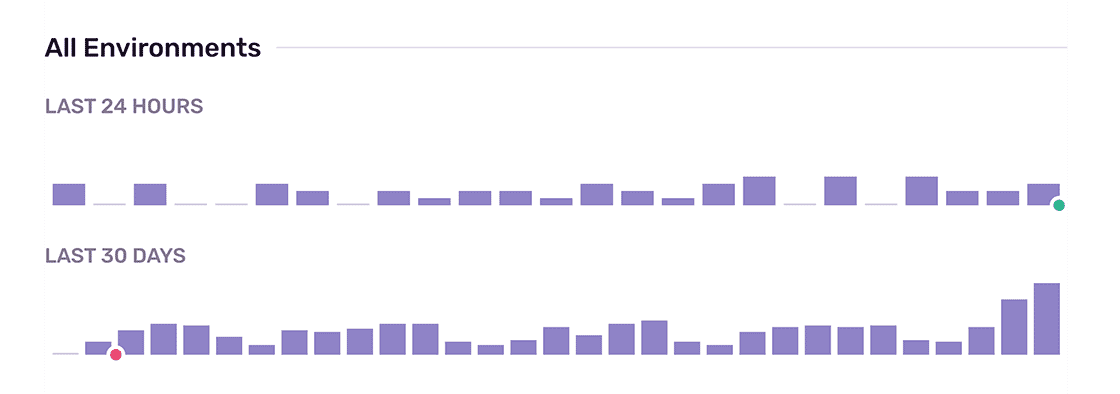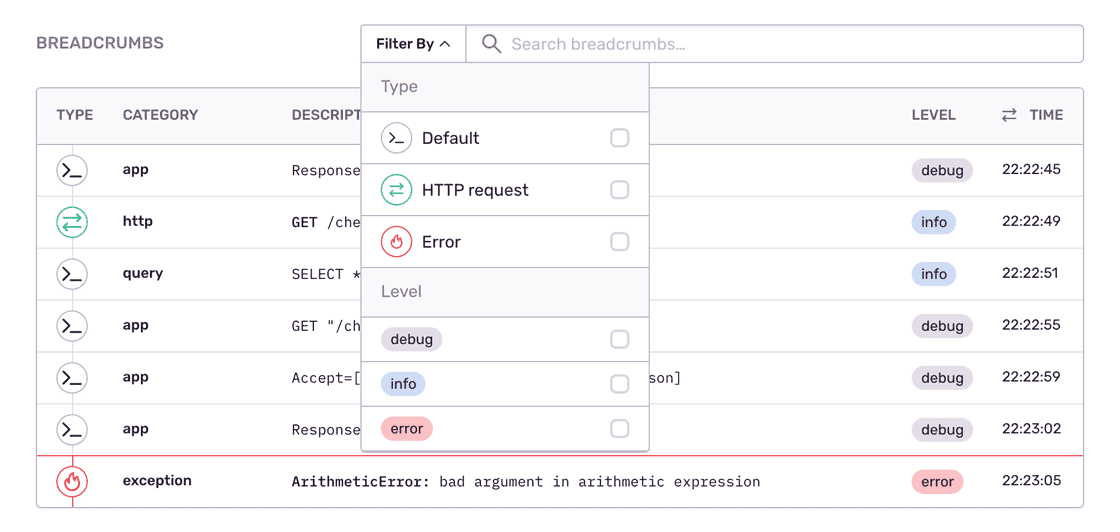
Elixir Error Monitoring
Debug Elixir apps and prevent crashes across your entire stack with Sentry. Resolve issues with an Elixir monitoring workflow that actually improves the debugging process.
Getting Started is Simple
Edit your mix.exs file to add it as a dependency and add the :sentry package to your applications:
defp deps do [ # ... {:sentry, "~> 8.0"}, {:jason, "~> 1.1"}, # if you are using plug_cowboy {:plug_cowboy, "~> 2.3"} ] end
Setup the application production environment in your config/prod.exs
config :sentry, dsn: "https://<key>@sentry.io/<project>", environment_name: :prod, enable_source_code_context: true, root_source_code_path: File.cwd!(), tags: %{ env: "production" }, included_environments: [:prod]
Check our documentation for the latest instructions.
See all platforms
Elixir Monitoring with Complete Stack Traces
See details like filename and line numbers so you never have to guess with Elixir errors. Filter and group Elixir exceptions intuitively to eliminate noise. Monitor errors at scale without impacting throughput in production.

More Than Just Bug Tracking
Use issue graphs to understand the frequency, scope, and impact ofElixir errors so you can prioritize what needs to be fixed. Get alerts via email, SMS, or chat when bugs make it into production without disrupting your development workflow.

Insights Delivered
Get real-time insights immediately. Setup takes just a few minutes and typically requires only two lines of code. If you need help, we’ve built a full documentation library to handle any debugging scenario.
“Sentry has become mission-critical to the way we build and ship software.”
See the Full Picture of Any Elixir Exception
Understand the context that contributed to errors with tags and relevant information about your software, environment, and users.
You can also submit optional custom data to provide extra context for bug tracking that is unique to your application and business.
Find answers to the key questions: Which users are experiencing this bug? What was the value of their shopping cart?
It’s why companies that don’t have a complete view of their infrastructure are being punished:
The average cost of network downtime is around $5,600 per minute — or $300,000 per hour.
1 out of 5 online shoppers will abandon their cart because the transaction process was too slow.
On average, a two-second slowdown in page load decreases revenues by 4.3 percent.